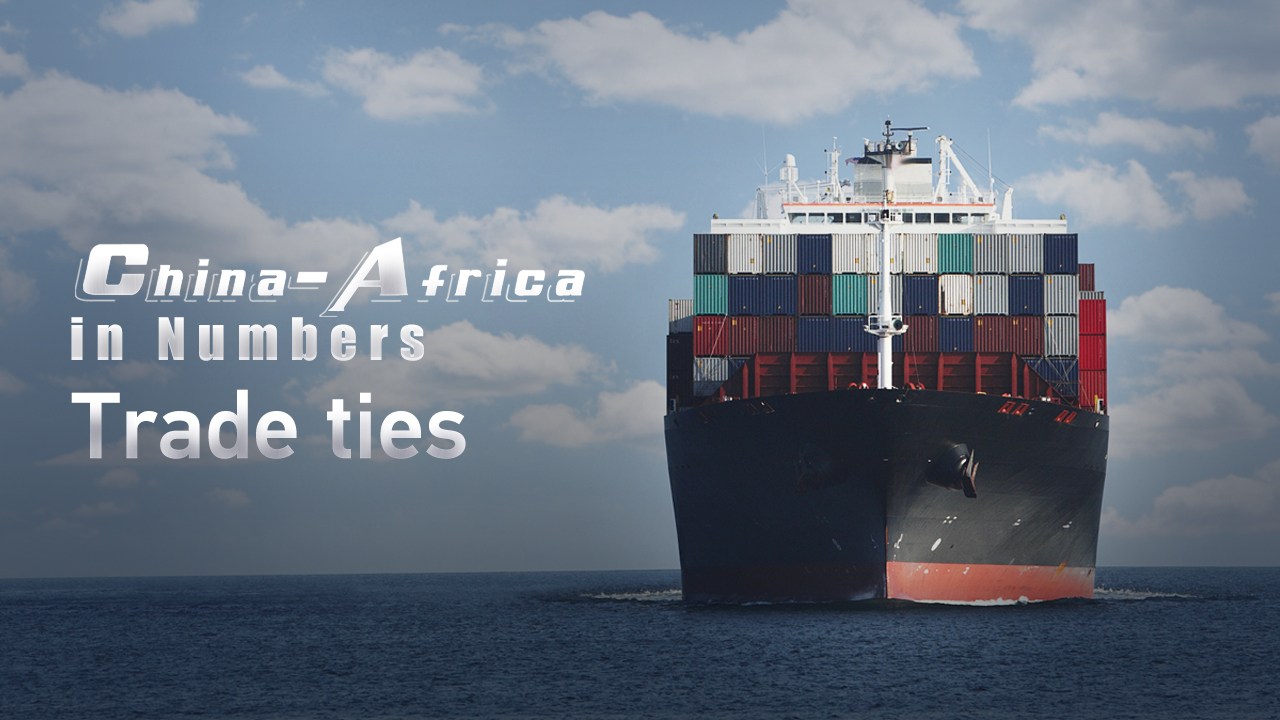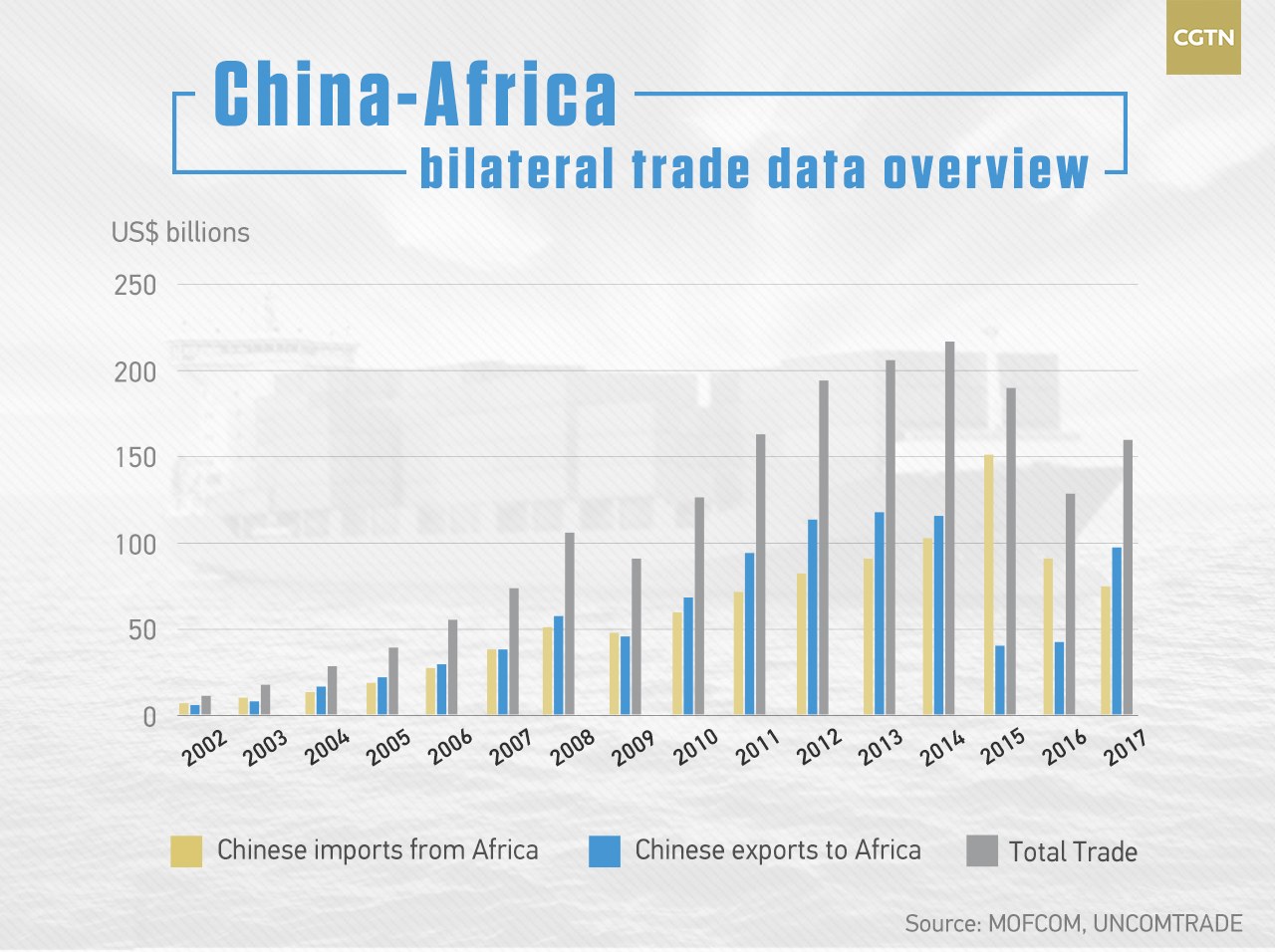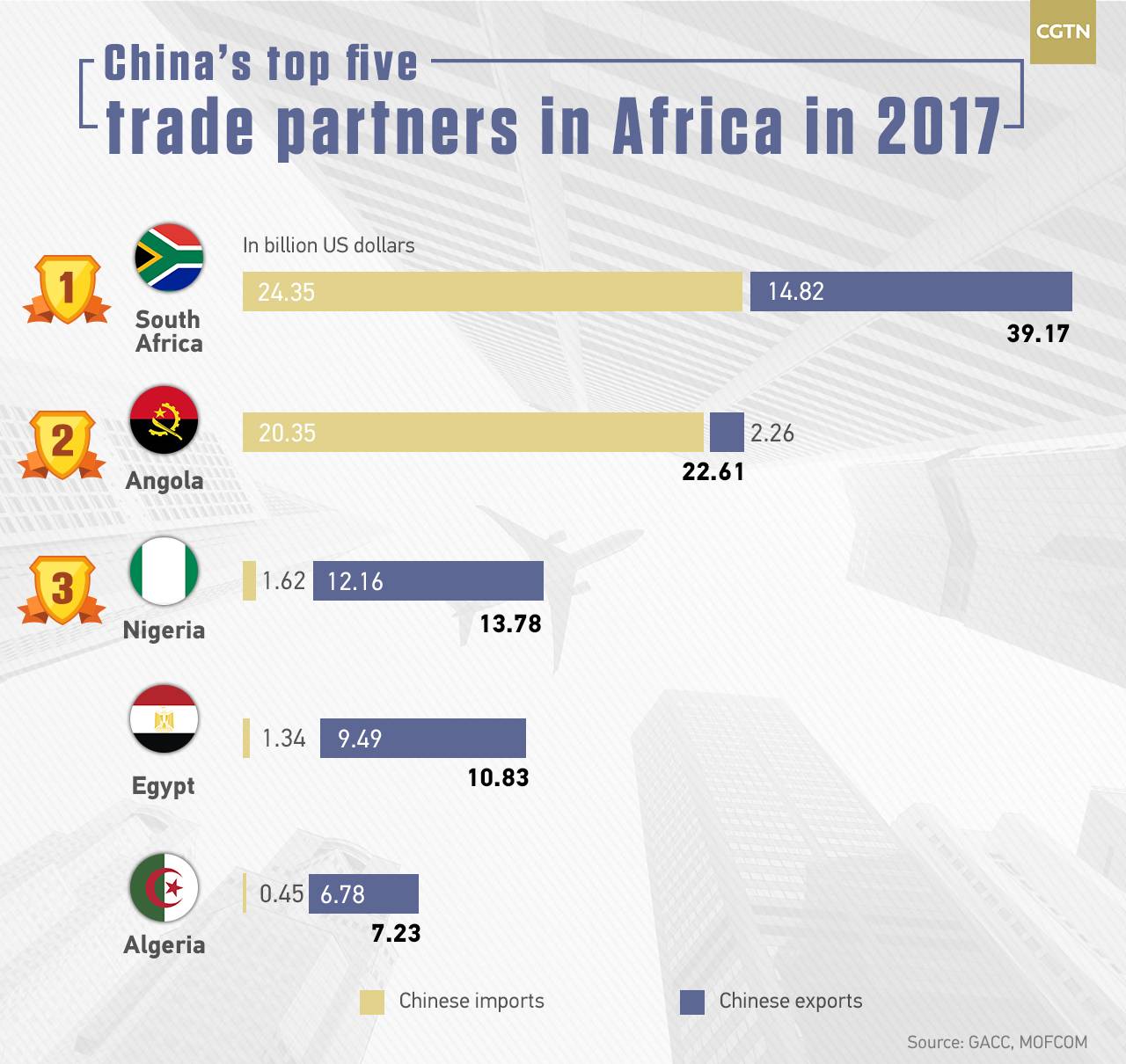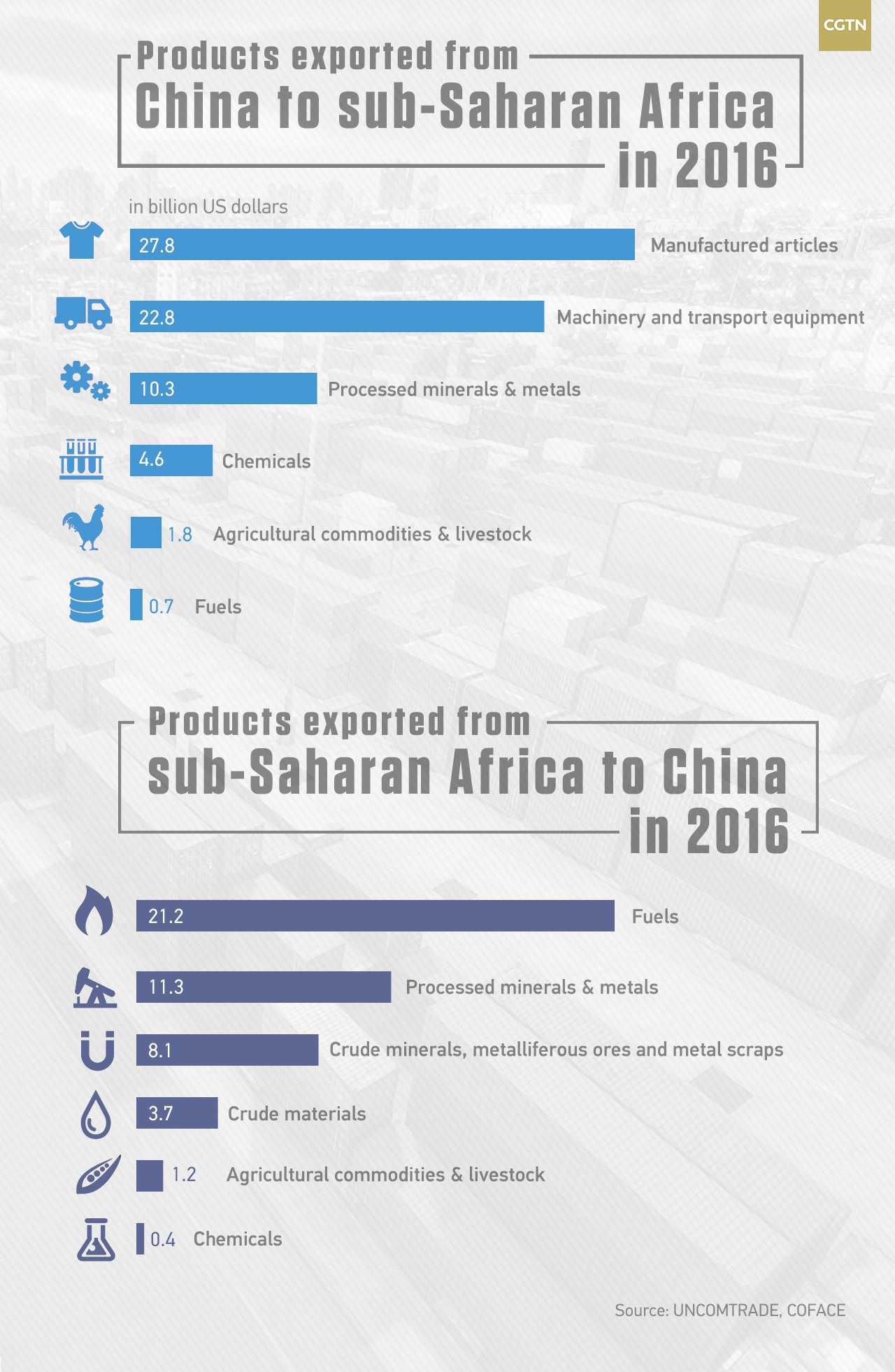
Business
13:10, 04-Sep-2018
China-Africa in numbers: Trade ties
Updated
13:10, 07-Sep-2018
CGTN

Commerce is very important for the China-Africa relationship, creating jobs, wealth and new opportunities.
Chinese businesses are shipping African products back to China, as well as bringing goods and jobs to local markets.
Many entrepreneurial Africans have journeyed to China in recent years, looking to make their fortune by shipping Chinese goods back home.
However, Tanzanian John Rwehumbiza is bucking the trend - in 2005 he started to import cassava from his home country to China.
Rwehumbiza told CGTN that about 97 percent of agro products coming from Tanzania to China are now duty-free, and the consequences were positive for both Chinese consumers and Tanzanian farmers.
"Mutually they're benefiting because China has a very big appetite for cassava. We have so many farmers in Tanzania, but they're not benefiting from it. We cultivate cassava quite a lot. We have very big land; cassava can grow everywhere. With the business we're doing, they're going to earn quite a lot."
01:53

China-Africa trade grew from a mere 765 million US dollars in 1978 to 170 billion US dollars in 2017, a more than 200-fold increase.
Trade between China and Africa continues to increase steadily, and China has maintained its position as Africa's largest trading partner for nine years in a row.

South Africa, Angola and Nigeria were China's top three trading partners in Africa in 2017, and according to China's Ministry of Commerce (MOFCOM), China's trade value with these three countries increased by 12 percent, 45 percent and 30 percent respectively year-on-year.
In addition, the import and export trade volume between China and each of South Africa, Angola, Nigeria and Egypt exceeded 10 billion US dollars last year.


According to the International Monetary Fund (IMF), access to new markets for sub-Saharan Africa's raw materials has spurred exports, which have quintupled in real value over the past 20 years.
"Maybe even more important, by diversifying its trading partners, sub-Saharan Africa has reduced the volatility of its exports," the IMF report said.
"The trade has boosted living standards in Africa through access to cheap Chinese consumer goods, from clothing to mopeds, and has contributed to lower levels of inflation in many countries," the report added.

SITEMAP
Copyright © 2018 CGTN. Beijing ICP prepared NO.16065310-3
Copyright © 2018 CGTN. Beijing ICP prepared NO.16065310-3